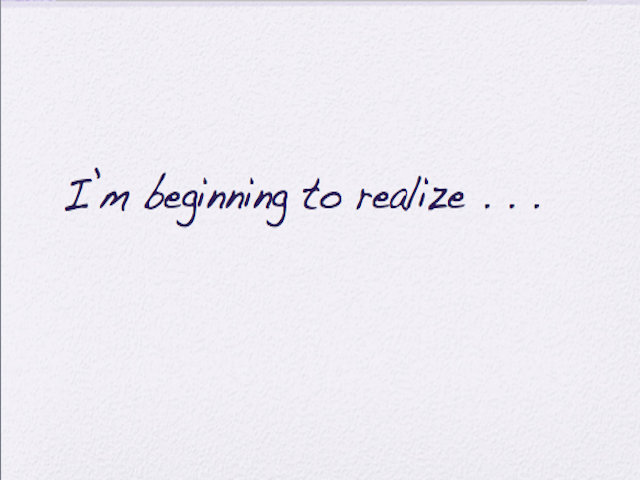Is the Struggle to Make Meaning Good for Your Health?

There are two pieces of research I’ve been thinking about this month. Both are about the struggle to make meaning through language and both, I think, are relevant to this whole question of what writing and rewriting our stories.
The first study, conducted by James Pennebaker and colleagues in 1997, shows that when people used increasing numbers of insight words or causal words in their writing they showed improvements in health. Examples of insight words are realize, understand, think, and consider. Examples of causal words are such words as cause, effect, reason, and because. In a discussion of this study, Pennebaker writes: “The present analyses indicated that changes in thinking patterns—as opposed to static thinking patterns, which do not change over time—predict improved health.”
I find this study terribly interesting. The researchers weren’t trying to measure how insightful these narratives people wrote were, or whether or not they were “good” narratives. What they were measuring—and what seemed to matter—was this process of finding meaning—this indication that, over time, thinking patterns changed. And this process of finding meaning is suggested by sentences that included cognitive words and that might look something like this:
I’m beginning to realize . . .
I think perhaps . . .
I thought I understood what had happened, but now I’m considering . . .
Changes in thinking patterns—as opposed to static thinking patterns, which do not change over time—predict improved health.
It’s the kind of statement that’s worth considering, I think, and coming back to. It’s the kind of finding that has implications not just for writing and healing, but for healing itself—–
Part 2 of this article–an article about the struggle to make meaning in psychotherapy–can be found here.
